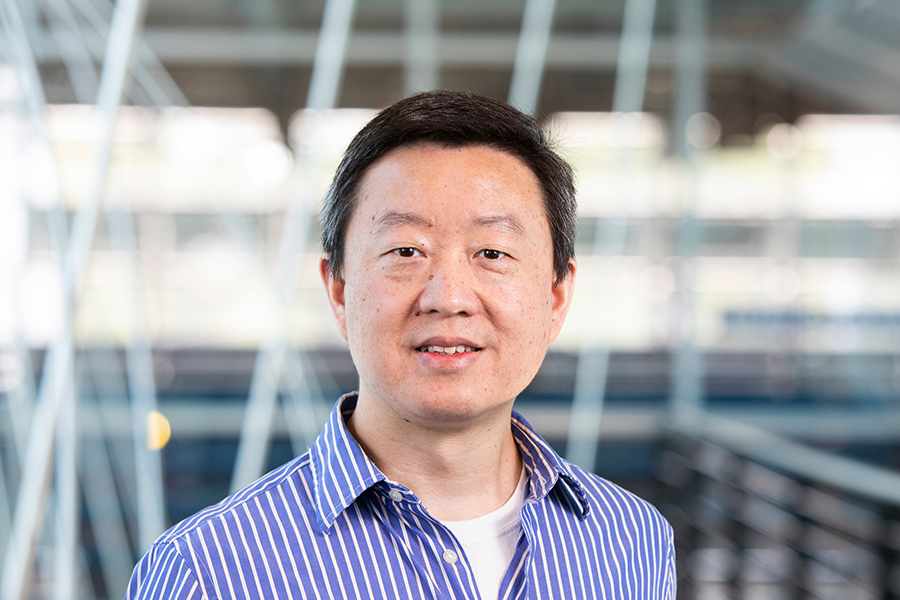
Wei Guo, a professor in the Department of Mechanical Engineering at the FAMU-FSU College of Engineering and a researcher at the National High Magnetic Field Laboratory, has been elected a Fellow of the American Physical Society (APS).
Guo received the honor for the development and advancement of flow visualization techniques using both molecular tracers and solidified particle tracers in liquid helium and their application to the study of quantum fluid dynamics in superfluid helium-4.
The APS Fellowship Program recognizes members who have made advances in physics through original research and publication or made innovative contributions applying physics to science and technology. He was recommended for the award by the American Physical Society Division of Condensed Matter Physics.
“It’s a genuine honor to be named an APS Fellow,” Guo said. “This distinction is a testament to the intriguing avenues this field has opened for me and the unwavering support from my colleagues and the institution I represent.”
Guo earned his doctoral degree in physics from Brown University in 2008, conducted postdoctoral work at Yale University from 2008 to 2012 and joined Florida State University in 2012. His research spans quantum fluid dynamics, dark matter detection, cryogenic accelerator physics, quantum-fluid-based qubits and liquid hydrogen aviation.
He has received support from federal funding agencies, including the National Science Foundation, the Department of Energy, NASA and the Army Research Office. He has been honored with several awards, including the Japan Society for the Promotion of Science Invitation Fellowship, funding from the Moore Foundation Experimental Physics Investigators Initiative, and the Outstanding Research Accomplishment Award from the FAMU-FSU College of Engineering.
Election to the APS is considered one of the most prestigious and exclusive honors bestowed on a physicist. The APS represents more than 50,000 members, including academia, national laboratories and industry in the United States and worldwide.
Each year, no more than one half of one percent of the society’s membership (excluding student members) is recognized by their peers for election to the status of Fellow of the American Physical Society.



